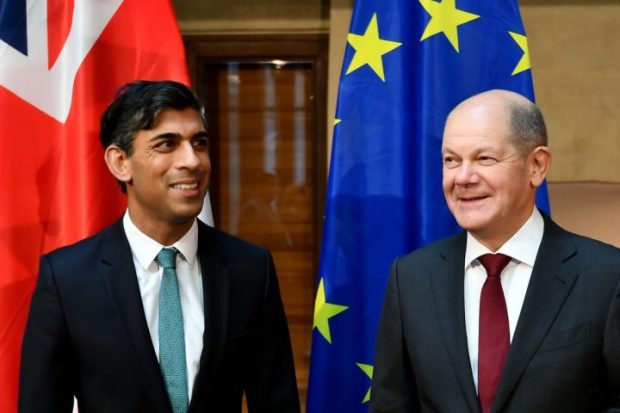Over the last couple of years, I’ve been writing regularly on the seething controversies around biological sex and gender identity. I’m a barrister, specialising in discrimination and employment law and chair of the new human rights organisation Sex Matters, so I take a professional as well as a personal interest in the subject. My stance is broadly ‘gender critical’. I believe that biological sex is real, and that sometimes has consequences that matter; that there are exactly two sexes; and that although human beings are free to embrace the gendered behaviour associated with the opposite sex, and even to modify their bodies so that they look more like a member of the opposite sex, they cannot literally change sex.
These facts are obviously true, and the vast majority of people believe them. And yet they are now also bitterly contested. Many of those writing and campaigning in this area have suffered bullying, no-platforming, threats to their livelihoods, and even threats of death or rape. The attacks are disgraceful, but I became concerned that they were creating a chilling effect wider than was justified by the real risks in speaking up. So last month, I wrote my own story in a short blog, entitled ‘Not Cancelled: I have suffered no serious adverse consequences from my gender-critical writing. The end.’
That’s still true – but in the last few days I have faced quite a serious attempt to cancel me from an event at which I was to speak.
On 20 October, Middle Temple (one of the four ancient Inns of Court) announced a combined event: the inaugural annual dinner of its LGBTQ+ Forum and a pre-dinner discussion called ‘The fight to ban gay conversion therapy’ between Robin Allen QC, Nancy Kelley, CEO of Stonewall and another Stonewall speaker. On 29 October the government launched its rushed six-week consultation on proposals to criminalise ‘conversion therapy’.
The attentive student of current affairs will have noticed that the initials ‘LGBTQ+’ include ‘L’, which stands for ‘lesbian’. Some lesbians are also barristers, and some of those lesbian barristers have gender-critical views. So some gender-critical lesbian barristers – and their allies – wrote to the Inn’s LGBTQ+ Forum to ask why it was fielding a one-sided panel on such a contentious topic.
We felt strongly about this because we think the proposed ban on ‘conversion therapy’ dangerously muddles two things. Almost everyone agrees that trying to change someone’s sexual orientation is futile and likely to be harmful – although the evidence that this is enough of a current problem in the UK to require legislation is thin to non-existent.
But the proposed law would also criminalise talking therapies seeking to change someone’s ‘gender identity’. So for instance, a therapist treating a girl with gender dysphoria could risk criminal penalties (including imprisonment) if he or she sought to understand and relieve the child’s distress before ‘affirming’ her identity as a boy. The risk is that vulnerable children will be fast-tracked to irrevocable hormone treatment, surgeries and lifelong medical attention before the causes of their distress are properly understood.
What happened next surprised us. The LGBTQ+ Forum acknowledged we had a point – and invited me to join the panel. Stonewall deserves some credit for its decision to go ahead with the event anyway, abandoning its usual ‘no debate’ stance.
But there was push-back from other quarters. Jolyon Maugham QC tweeted about the event to his thousands of followers, objecting to my inclusion. He cited a blog post I had written about Mridul Wadhwa. Wadhwa is the trans-identifying man who has been appointed CEO of Edinburgh Rape Crisis Centre, a job ostensibly restricted – lawfully, and for obvious good reason – to female candidates.
Maugham argued that my decision to use male pronouns for Wadhwa suggested I should not be given a platform by the Inn. He rapidly deleted his comment, but not before he had drawn my blog – and the scandal of Wadhwa’s appointment – to the attention of many additional readers.
A group of anonymous law students and barristers then published an open letter calling for me to be dropped from the event. The letter argued that my inclusion sent a ‘damaging message to trans members and prospective members of the Inn that their inclusion is not something they can take for granted but is “up for debate”.’ This was odd, because the subject of the session was the government’s proposal to ban ‘conversion therapy’: no one had suggested that the inclusion of trans people in the legal professions should be up for debate, nor would it have been relevant to the event if they had. As I argued in Lawyer magazine in November, it’s particularly dismaying when lawyers shun reasoned debate in favour of name-calling and cancellation.
In the end the Inn stood firm, and I gave my talk, the text of which can be found on the Legal Feminist blog.
Bullying and silencing opponents is a tactic that has served the trans activist agenda well until recently, and many people are still afraid to admit to gender-critical views at work or even among friends. But the tactic is losing its power. It makes me proud of my profession that one of the Inns of Court has taken an unequivocal stance in favour of rational argument; and immensely touched and grateful that it was Middle Temple’s LGBTQ+ Forum itself that took the decision to cancel the practice of ‘No Debate’ instead of cancelling me.
Got something to add? Join the discussion and comment below.
Get 10 issues for just $10
Subscribe to The Spectator Australia today for the next 10 magazine issues, plus full online access, for just $10.



















Comments
Don't miss out
Join the conversation with other Spectator Australia readers. Subscribe to leave a comment.
SUBSCRIBEAlready a subscriber? Log in